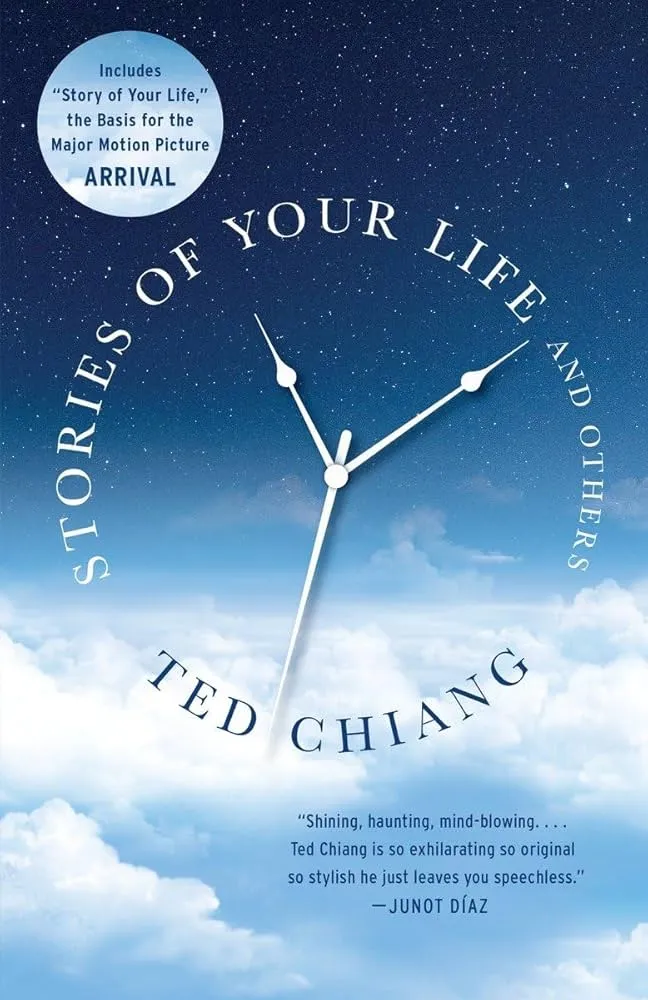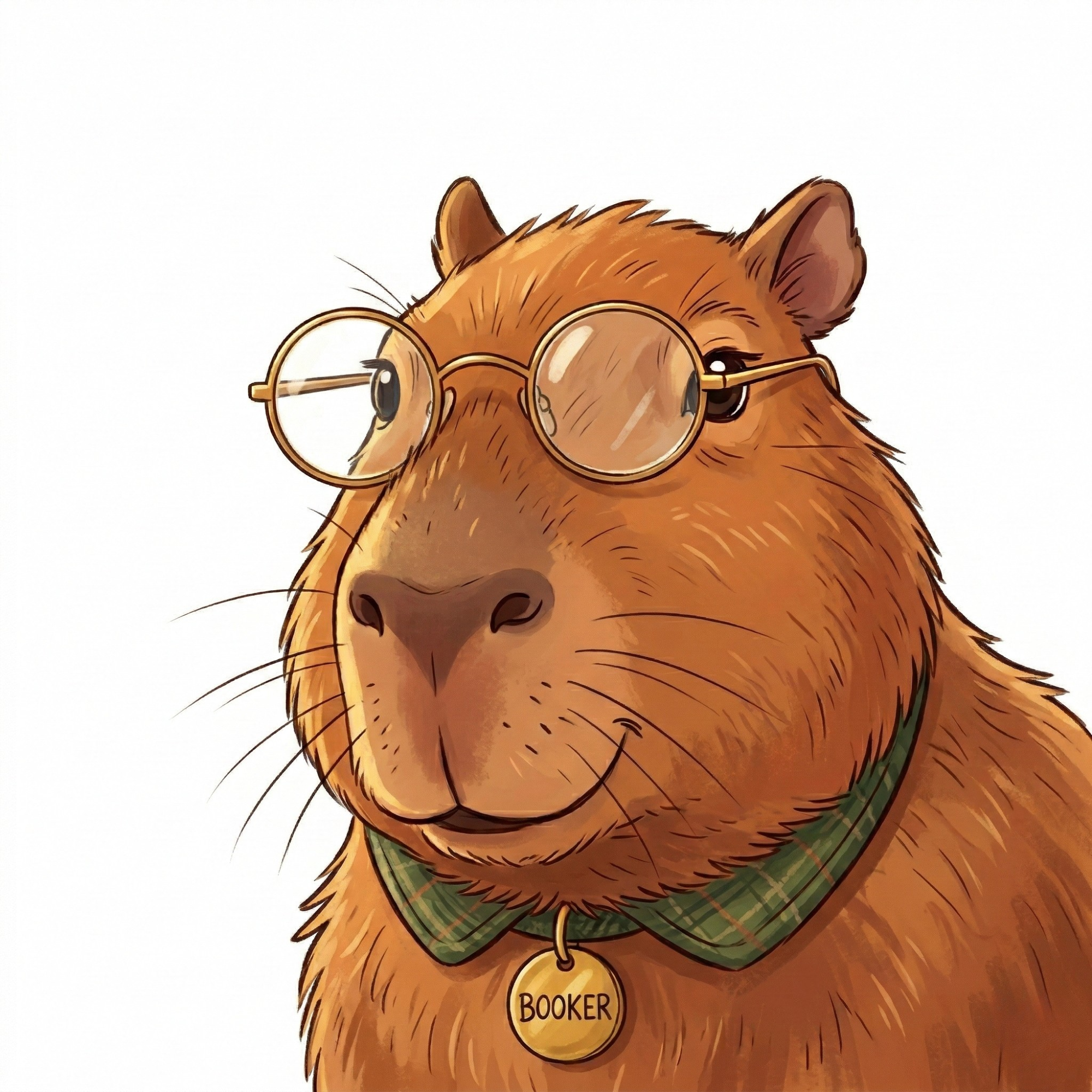>Ted Chiang writes tech in service of the human story.
here's how you can do it too:
Analysis
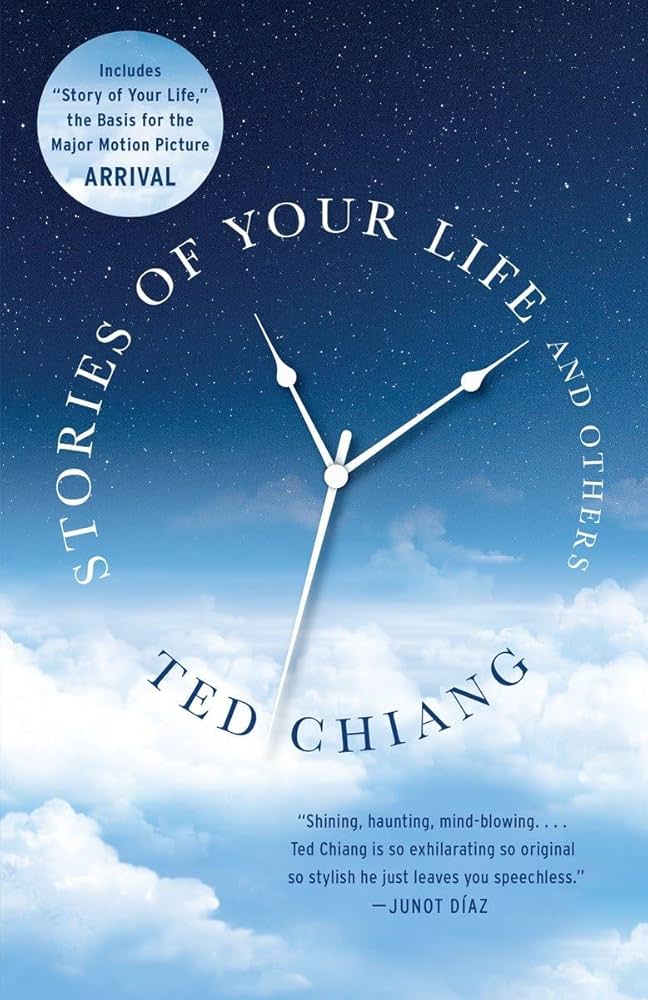
Keith Insights
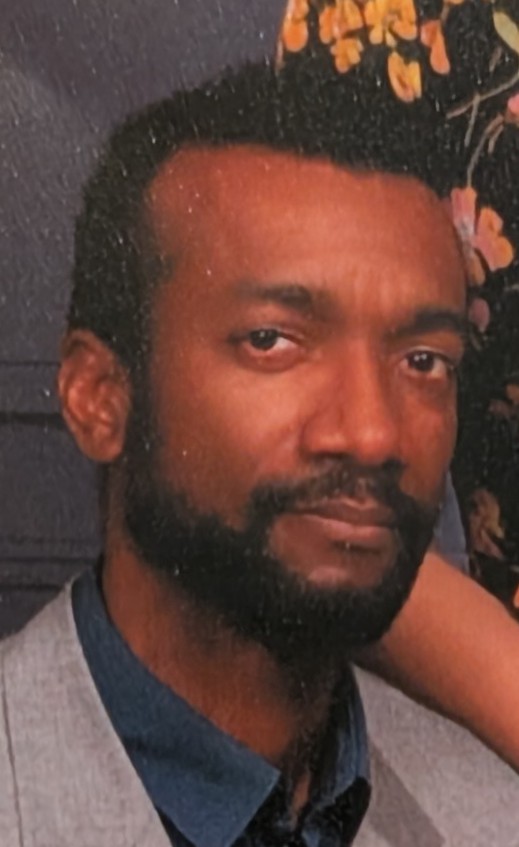
Transcript
Introduction
This analysis of Ted Chiang's work was very validating, actually.
I think that's the way I want to put it.
I haven't read any of his books, but of course I'm familiar with probably his most famous story, Story of Your Life, which was adapted into the movie Arrival several years ago.
If you haven't seen Arrival, then it's basically an alien story.
It's famous because of the way the story is presented.
Arrival & Circular Narrative
It's presented in this circular, chronological way to where past, future, and present blend with each other.
You'll be in the present scene, and then the show remembers something from the future, but then it's still in the present.
It's that type of mind-bending type of thing, and then you have the aliens.
I remember watching it, and I remember I really liked the movie.
Actually, it was earlier this year, the beginning of the year, that I was talking with a friend.
At the time, I was working on my upcoming novel.
This novel keeps getting pushed back, but Cereus & Limnic: Escape from Okinawa.
When I was talking about how this novel is basically structured like a case file, and it has to do with AI and aliens and that type of thing, future tech.
Connection to My Work
Because my Cereus & Limnic series is essentially that.
It's essentially future technology, but then its impact on human society.
He mentioned Ted Chiang.
He was like, man, you should read Ted Chiang, because it sounds like philosophically and even probably somewhat stylistically, your styles are probably very similar.
After listening to this analysis, I was like, damn, me and Ted Chiang are intellectual soul brothers, man.
Just because they were talking about his techniques and what he does, and the biggest one that had me the entire time smiling and nodding was that he focuses on technology, but the focus is not the technical rigor of the technology or the science.
It's always grounded in the human experience of it.
It's like, why do we create technology in the first place?
We create it to make our lives more efficient, to make them more fruitful, to make them better.
All technology exists because it serves some sort of function of easing a burden or making it take less time or making it less dangerous.
That's why we create technology.
Chiang vs. Liu Cixin
And comparing him to another Chinese writer, Liu Cixin, famous author of the Three-Body series, I think this is where they kind of diverge.
Because Liu Cixin is very interested in the science.
I think his background is he's a physicist.
You get these in Three-Body Problem, in all three of the books, you get these very, very long and in-depth explanations of the physics and the math and the astrophysics and even fully on equations and that type of thing.
It's really like he geeks out on that stuff.
And Three-Body Problem suffers because of that as a series.
It's just harder to get into the human story of it.
It's like, okay, I see the technology.
What's the point of this?
And Three-Body Problem, the first book is probably the best balance of this.
The second book does it in the most interesting way.
The second book is probably my favorite.
And then I feel like the third book, I actually just put it down and I DNF'd it.
I didn't finish.
I was listening to it on audiobook because it was just way too much of the science and not enough of the character.
The character was just kind of the main character.
She's just kind of eclipsed by the technicality and the specifics of what's happening in the story.
Complexity of Time Blending
And so back to Chiang.
Chiang doesn't do this.
The other moves that they talked about in the analysis, they're actually pretty complex.
I mean, blending present, past, and future within maybe even the same paragraph, let alone the same scene.
I think in Story of Your Life, it served a very specific purpose and he probably doesn't write that way all the time.
But it is an idea.
It just feels pretty complicated in execution.
And I feel like it would be complex to read too.
Unless the reader's primed for that and you've kind of set that up, which once again, I have not read Story of Your Life, so I don't know how he sets it up or what he does writing-wise to make that work.
Technology & Human Drama
But the main idea of how he thinks about presenting stories, it's essentially how I structure, how I write my stories.
You have this piece of technology.
There's this fantastical capability.
But what does it mean at the human level?
I think that's what people are interested in most.
Some are geeked out about the technology and care about that, but I feel like more people care about the human drama more.
Recontextualization Technique
Another thing they mentioned is this recontextualization of you present one tidbit early on.
He looked at the pencil sharpener, the scans or something like that.
And then later on, you're like, the pencil sharpener was actually left over from the crash that his mom died in or something like that.
You recontextualize something small and then you give it more emotional weight and, oh, it was more important than we thought it was.
He mentioned that as a technique that Chiang uses.
And I like that.
I want to say I've done that before.
Actually, yeah, I have done that.
I've done that in Prompted Hearts and Grief Algorithm.
I won't spoil it, but there's an instance where there's this saying that the smartwatch is programmed to say to Kyoko in Grief Algorithm.
And then later on, you find out that it's more important than you think.
At first, it seems kind of random and it's not very explained, but over the course of the book, you get that increased context and there it goes, recontextualization.
I did it.
Closing Thoughts
I really enjoyed this one.
If nothing else, it was just validating to find that somebody else writes in a similar style, if not structure, as I do.
And I actually may change my comp titles for Prompted Hearts and Grief Algorithm because I feel like Ted Chiang's style definitely matches more of how I write in Grief Algorithm.
How I write in concept and not just in overall vibes and feel.
Pre-order Prompted Hearts and Grief Algorithm!
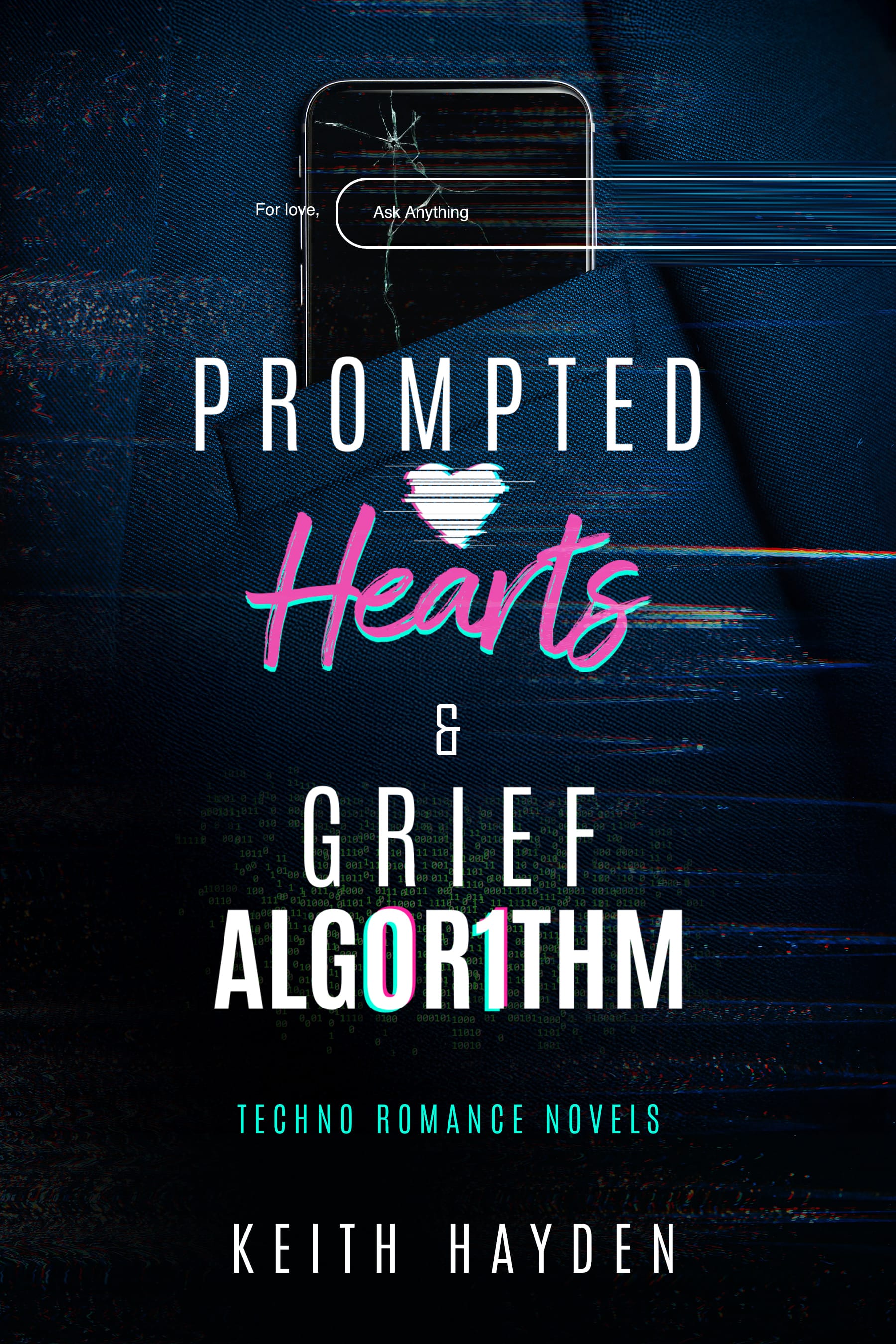
Word of the Day
peace-time - period when a nation is not at war

